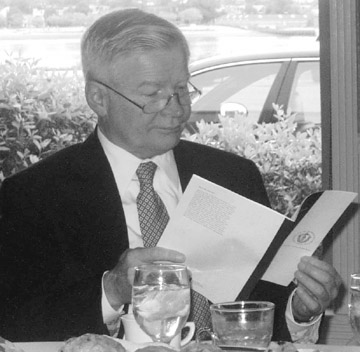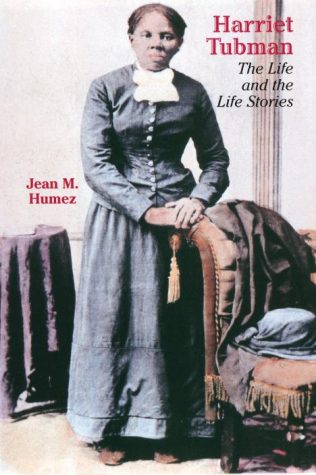Bulger Steps Down

August 29, 2003
In what is widely seen as a victory for Governor Mitt Romney, University of Massachusetts President William Bulger resigned his position on August 6th, capping his seven-year tenure by stating that he was stepping aside to further the best interests of the UMass system.
“In serving [the university], we have an obligation to act in its interest,” he said, adding, that “the university has become the target… of a calculated political assault,” a reference to Governor Romney’s well-publicized antipathy toward Bulger.
UMass Boston Chancellor Jo Ann Gora downplayed the feud, saying, “I don’t see it as a win for Bulger. I see President Bulger putting the university before himself.” She also praised his term in office, “I think he has left a great legacy. During his term as president of the university, he raised its visibility, increased its funding, raised its academic standards, and for many years increased our support when the commonwealth had money.”
Romney and Bulger have had a bitter political feud since Romney took office. One of Romney’s first acts as governor was to introduce legislation that would have eliminated Bulger’s 5.6 million dollar office and dismantled the current structure of the University of Massachusetts. Romney made the gesture more insulting by declaring his intention to eliminate Bulger’s position in a letter to his office, and then showed the letter to the press before delivering it to Bulger. Since then, Bulger and Romney have made no secret of their dislike for each other and have locked horns at every turn.
Bulger won a major victory over Romney in June, but also faced a growing scandal over his congressional testimony.
The State Legislature voted down the governor’s restructuring of the university, which would have spun off of the Amherst campus into a semi-private institution and dramatically raised the tuition. The other campuses would have been reorganized to include community and vocational colleges around the state, and eliminated the office president of the university, placing the schools directly under the management of the state.
Bulger has faced an increasing amount of criticism over the whereabouts of his brother, notorious South Boston gangster James “Whitey” Bulger. Whitey Bulger has been on the run since 1995. William Bulger was widely criticized when he pled the Fifth Amendment in front of a Congressional committee, who asked about his brother’s whereabouts and whether or not he was in contact with the now-legendary mobster.
Bulger again received sharp criticism when he finally did testify, in exchange for legal immunity, on June 20, 2003 to the House Government Reform Committee, the same congressional body before which he refused to testify in December. After Bulger’s testimony, which generated a great deal of unfavorable media attention, Governor Romney remarked, “William Bulger represents a cloud over the university and the right step for him to take is to resign,” and promised to use the UMass Board of Trustees to force Bulger out by appointing board members inimical to Bulger. Three trustees’ terms are up this September.
Bulger apparently took Romney’s suggestion, citing his hope that “the University and its Board of Trustees should not be subjected to further assault.” Bulger, 69, resigned rather than continue his feud with Romney. As part of the deal, Bulger will receive two years worth of salary and added compensations, a golden parachute worth close to million dollars. He is also eligible for a state pension of $200,000 per year.
Governor Romney called Bulger’s resignation “a positive development, positive for the students, positive for the university,” and reaction among state Republicans has been moderately jubilant.
Bulger has had a long career as one of one of Boston’s most powerful politicians. Born and raised in South Boston with very strong ties to the neighborhood, Bulger won his first election while still a university student, and, from 1978-1995, ruled the political scene for an unprecedented 17 years as president of the state senate and garnered a reputation as a ruthless enemy and a potent dealmaker.
Bulger brought his powerful personal charm and political connection to his job as president of UMass; his job essentially boiled down to fundraising, and he oversaw titanic growth in the university’s endowment and academic and research programs. During his tenure, the university received more than 100 million dollars in new research funding, 20 million dollars in licensing revenue and during the flush years of the dot-com economy, the state funding of the university ballooned. Tuition and fees declined by 6% over the first 5 years of Bulger’s tenure, and the university was hailed as an example to public education.
Bulger will officially step down September 1. No successor has yet been named, and last Friday, the Board of Trustees pointedly refused to name Bulger’s replacement.
The issue is still a hot political potato, given Governor Romney’s avowed intention to dismantle the university and his apparent willingness to play hardball by stacking the Board of Trustees with ringers. Romney had said that any appointee of his would have to pass a political “litmus test” to ensure their views agreed with his.
Whoever gets the job, it is clear there are challenging times ahead for UMass as campus infrastructures continue to deteriorate and the state economy, in severe fiscal crisis since the bursting of the dot-bubble, makes deep cuts into public institutions.
Chancellor Gora will settle for détente: “I would hope the next president will be an effective spokesperson in the Legislature and with Governor Romney.”






















































